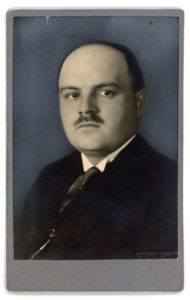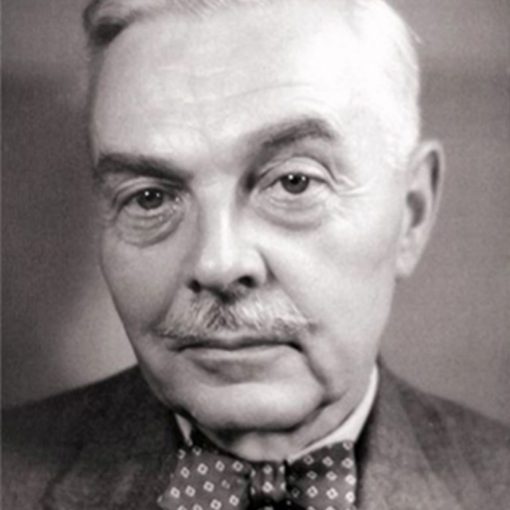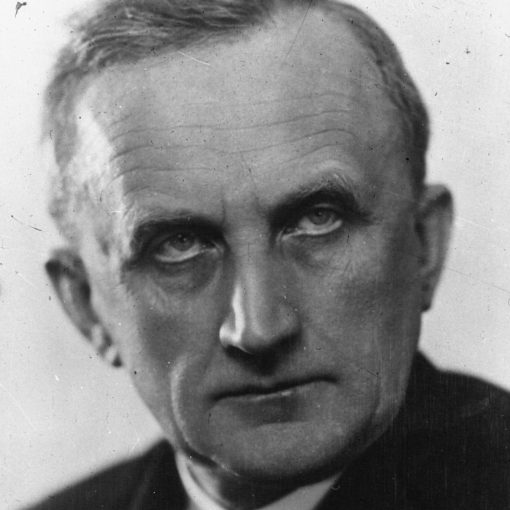The national economist Jan Dvořáček can serve as an example of a man who always tried to keep his finger on the pulse of the times. His contribution to the establishment of Czechoslovak foreign trade was extraordinary. His Masonic activity is mainly connected with the “business” Dílo Lodge. Dvořáček’s six years younger brother Josef (1893-1948), a prominent Brno pedagogue and co-founder of the Brno Higher Pedagogical Education and a school inspector, a Russian legionnaire, was in turn permanently connected with Freemasonry in the Moravian capital.
Jan Dvořáček was born on November 12, 1887 in Letovice, Blansko, and went to Prague to study technology, mechanical engineering, but he also focused on the national economy. After graduation, he worked in industrial practice, and his work in the Zbrojovka Brno company, from where he supplied information for the domestic resistance during the First World War, is significant. As a radical “Young Czech”, he was close to František Sís, who first recruited him as an informant for the Young Czech Resistance. He collaborated on situational reports that were sent to Vladimír Sís in Sofia. It is possible that he knew the Sís siblings from his youth in Brno. From Brno, Dvořáček enlisted in Pula as a naval engineer. In the autumn of 1915, he was transferred to a large munitions factory in Lower Austria, from where he delivered reports to “the Maffia” and also prepared reports on arms production in the whole of Cisleithania. Later, he also drafted intelligence material on conditions at the front and sent reports to Paris, as the headquarters of the foreign resistance, on, among other things, the production of war gases and preparations for the gas war.
With the arrival of Alois Rašín and František Sís to the top positions in the Young Czech Party, Dvořáček became a member of its executive committee, and then continued within the National Democracy, for which he was a deputy and minister in 1925-1926. He was one of the party’s pure pragmatists. It was his cooperation with Sís and his activities in the resistance that led him to the first group of Freemasons, the Národ Lodge, and his professional anchorage directed him, like Rašín, to the Dílo Lodge.
The First Czechoslovak Republic opened up new possibilities for him. He began his career in the central state institutions as a union chief of the Control and Compensation Bureau for International Trade at the Ministry of Commerce, from where he moved in 1920 to the Office of Foreign Trade, where he headed the Slavic Department, focusing on economic relations with Eastern Europe. After two years he moved to the Ministry of Foreign Affairs, where he headed the National Economic Section and served as Minister Plenipotentiary for the negotiation of trade treaties. In the second Švehla’s government he held the post of Minister of Trade and Commerce. Dvořáček was indeed a key figure in many international negotiations, where he often represented Czechoslovak interests directly alongside Edvard Beneš, whether at Rapallo (the Genoa Conference), at the League of Nations, or in negotiations with Austria, Hungary, Poland or the Little Entente countries, or personally with Mussolini. Dvořáček also devoted himself to economic diplomacy theoretically and in publications.
In the autumn of 1926, a fundamental change occurred in his life. He left politics and the public sector for the private sphere, accepted the offer of Živnobanka and became the director of its industrial department. Together with Jaroslav Preiss, however, he was still trying to improve the position of the National Democratic Party, which was steadily weakening. In the 1930s, he belonged to the Democratic Centre magazine circle. He and his family anchored in Bubeneč, on today’s Puškinovo (then Uralské) náměstí, where many personalities of the banking world and the Masonic world lived and socialised.
In 1938, when Jaroslav Preiss resigned from the direct management of Živnobanka in the changed circumstances, Jan Dvořáček replaced him at the head of this financial colossus and held the post of chief director until the end of the Second World War.
Surprisingly, neither the post-war changes nor the February 1948 stopped his career. Dvořáček was loyal to the new regime, became a promoter of new economic relations between Czechoslovakia and the Soviet Union, and was heavily involved in the Czechoslovak-Soviet Friendship Union. He died almost symbolically on a business trip on a train between Moscow and Kiev on July 22, 1956.
Jana Čechurová
(article originally published in the magazine called Svobodný zednář)




